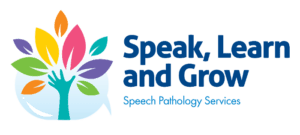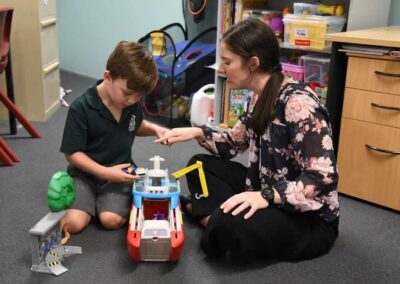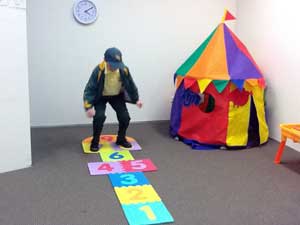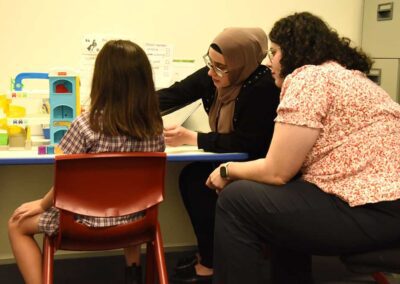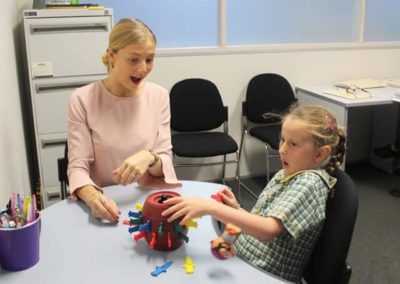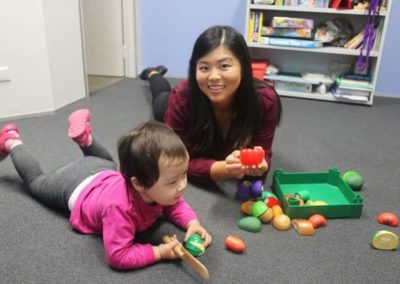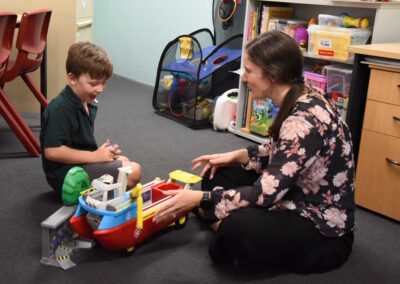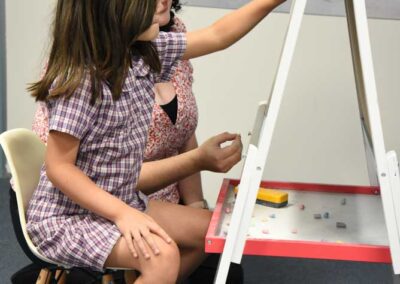Have you heard of the term orofacial myology or have you been told that your child should see an orofacial myologist? This sounds like a big, unfamiliar word, but it simply involves helping your child’s mouth (oral) and face (facial) muscles work their best. In this blog, let’s dive into what orofacial myology is, why it matters and how it can make a big difference for your child.
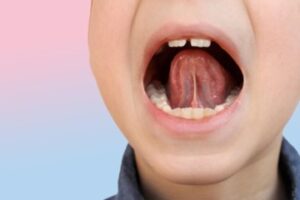
Understanding Orofacial Myology
Orofacial Myology is like a superhero for your child’s mouth and face muscles. It involves exercises and techniques that fix how these muscles move and do their job. When the muscles work well, it can improve your child’s speech clarity, prevent dental issues and even impact how their face develops.
Common Myofunctional Issues:
- Tongue thrust: This is when the tongue pushes against the front teeth when your child swallows, instead of moving backwards. This forward tongue movement during swallowing, together with a forward tongue resting position, results in a lisp (the tongue comes between the teeth when a child says ‘s’ and ‘z’). This continual forward tongue position can also impact the development of the teeth.
- Thumb sucking: If your child loves to suck their thumb or fingers and continues to do this for too long, it often results in dental issues (such as open bite or over jet) and can impact the development of the roof of the mouth.
- Open mouth breathing: Except when your child is temporarily sick, they should always breath through the nose. Mouth breathing leads to issues with the tongue’s resting position, which in turn, impacts their speech production and development of the mouth.
- Sleep disordered breathing: When the mouth & facial muscles aren’t functioning correctly, a child may experience sleep disordered breathing which can range from frequent snoring to obstructive sleep apnea. When sleep is affected, a child may demonstrate irritability, behavioural issues and poor learning.
Myotherapy Techniques: 
- Muscle Workout: Just like doing exercises helps our bodies stay strong, orofacial myology uses exercises to strengthen the muscles in the mouth and face.
- Correct patterns: Therapy involves retraining the muscles so that your child learns the correct muscle patterns needed for swallowing and speech.
- Mouth tools: Your therapist may use a variety of tools, such as myodots or bite blocks, to help the muscles learn new patterns.
Why Orofacial Myology is Important for Your Child:
- Speech clarity: Orofacial myology can result in improving speech issues, such as a lisp, that are difficult to treat with speech therapy alone.
- Orthodontic support: Orthodontists often refer to an orofacial myologist to support the work that they are doing. Retraining the mouth & face muscles can result in lasting changes to how the roof of the mouth forms and how the teeth grow.
- Prevent dental issues: By addressing issues like tongue thrust and thumb sucking, orofacial myology can prevent dental misalignments and malocclusions.
- Enhance facial development: When the muscles in the face work well, the face develops as it should and looks balanced.

Conclusion
Orofacial myology is like a special helper for your child’s mouth and face. It’s all about making sure that everything works the way it should, resulting in clear speech, good teeth development and balanced, good-looking faces.
If you are concerned about your child’s oral habits, swallowing or speech, contact us to speak to one of our orofacial myologists and start your child’s journey to bright smiles and clear speech.
